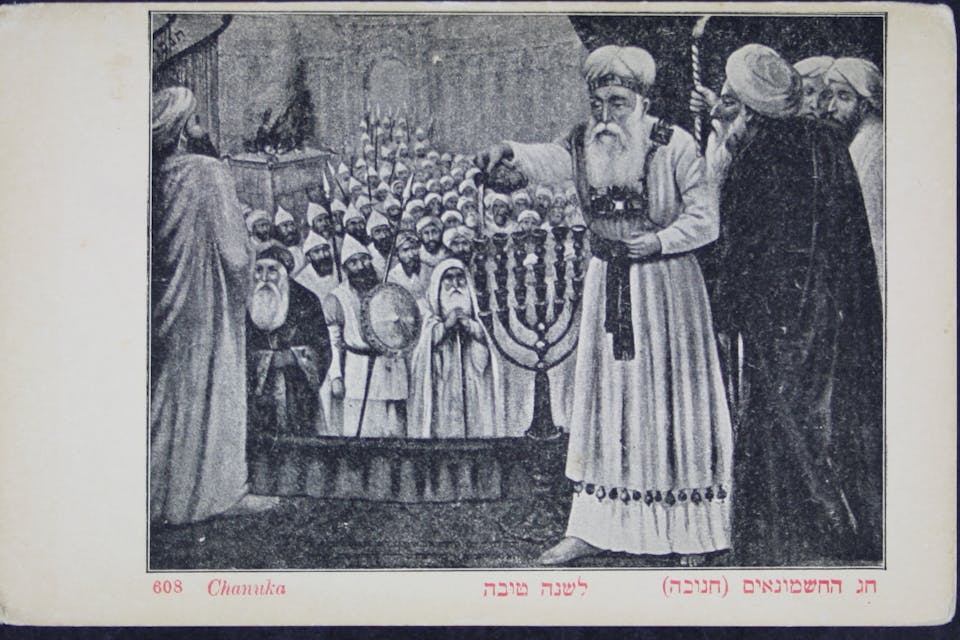
December 14, 2020
What Zionist Historians Have Thought about Hanukkah
"It was one of the decisive events in human history. Never before had men been convinced, as they were then, that an idea was something to fight for and to die for."
While the basic elements of the Hanukkah story are both straightforward and well known—the Seleucid oppression, the heroic victory, and the miracle of the oil—the ways Jews have understood it have shifted over the centuries. There is, most famously, the striking discrepancy between the Talmud’s explanation of the holiday and the one found in the first and second books of Maccabees. But despite the many anomalies in the Talmud’s treatment of Hanukkah, there is little doubt that even in pre-talmudic times the holiday enjoyed a great deal of popularity in both the Diaspora and the Land of Israel. This very popularity may in part explain why the festival developed so many new shades of meaning over the centuries.
For instance, in the 10th through 12th centuries, Jews composed new texts—which quickly became popular in Germany, Italy, and the Islamic lands—emphasizing the Hasmoneans’ courage and military prowess. The Scroll of Antiochous, Yosipon, and other works of their kind turned Judah the Maccabee and his fellow warriors into Jewish versions of the heroes of classical antiquity or of such contemporary figures as Roland and El Cid.
With the advent of modernity, the holiday would be reimagined in a variety of ways yet again, in each case a reflection of the religious and ideological condition of different Jewish communities. Thus Jews who aspired to integrate into the surrounding society, as in Germany and later in the United States, turned their attention to Hanukkah’s proximity to Christmas. To a large extent, lighting colorful Hanukkah candles (going so far as to turn the menorah into a “Jewish Christmas tree”) and giving gifts to children imitate Gentile practices. More recently, Hanukkah in America seems, in some quarters, to have ceased to be a festival representing a people’s struggle for religious and national freedom, and has instead become an abstract universal symbol of sorts, in which the menorah signifies the light of freedom itself.